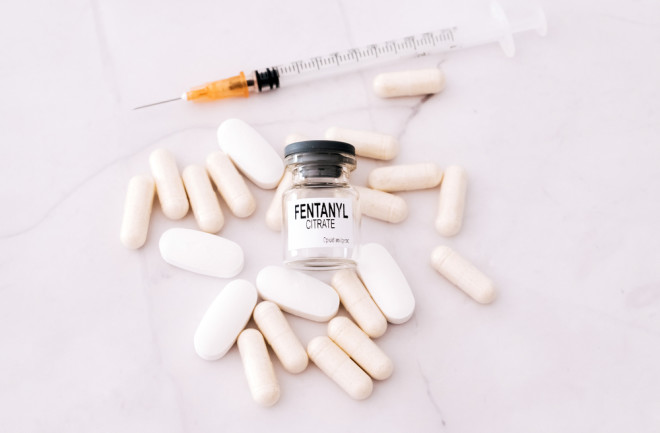Drug overdose deaths have skyrocketed in the U.S. in recent years. In 2021, 106,699 people died of overdoses. According to the Centers for Disease Control and Prevention, that number was up 14 percent from the year before.
Experts contend that it’s not that more people are using drugs; it’s that the drug supply has been contaminated with highly potent fentanyl, a synthetic opioid that is 50 times stronger than heroin. Overdose deaths that included fentanyl increased by 22 percent last year alone.
While there are effective treatments for opioid addiction disorders, like the medications buprenorphine and methadone, and naloxone for reversing overdoses, the problem is still getting worse. As a result, scientists are rushing to find solutions.
Fentanyl Vaccine Breakthrough
Researchers at the University of Houston think that a vaccine might help. In an October 2022 study published in the journal Pharmaceutics, researchers were able to show that in rodent models, a fentanyl vaccine successfully blocked the drug from reaching the brain and also reduced certain physiological responses, like depressed respiration and heart rate, common in overdose victims.
Both male and female rats produced “significant levels of anti-FEN antibodies.” While researchers have only tested on animal models, there’s still a lot that can be learned from the trials, says study author Colin Haile, a researcher at the University of Houston’s Drug Discovery Institute.
Read More: This Is What Makes Certain Opioids More Deadly Than Others
How Does the Vaccine for Fentanyl Work?
The typical vaccine induces the immune system to produce antibodies against the pathogen you’re trying to fight. The antibodies produced from the vaccine bind to the virus or bacteria and neutralize it. “In this case, we’ve made a vaccine that generates antibodies against a chemical,” says Haile.
Ideally, when a vaccinated individual takes a drug that contains fentanyl or fentanyl derivatives, the antibodies produced by the vaccine bind to the drug and prevent it from getting into receptors in the brain. They hold the drug in the bloodstream until the body can eliminate it. Since fentanyl can’t enter the brain, the drug cannot cause addiction, and it can’t cause the physical symptoms that lead to overdose deaths. Additionally, says Haile, “the vaccine doesn’t allow drug users to feel the euphoric effects of fentanyl.”
In preclinical experiments, the vaccine worked for about 5 to 6 months in rodent models, which, says Haile, “is a while in the life of a rat.” Whether that will occur in humans in a similar way is what researchers will be looking for in the first clinical trials that will be coming up.
The hope is that the vaccine could be used as a “relapse prevention agent.” For those who have gone into drug treatment and are taking medication like buprenorphine or methadone, potentially getting vaccinated could avoid relapse and the risk of dying from a drug overdose. When an individual has detoxed from a drug, their tolerance is reduced, and they’re more likely to die from overdosing if they relapse.
Read More: Is Methadone Safe for Pain?
What’s Next for the Anti Fentanyl Vaccine?
While it’s an interesting concept, it’s far from being available to drug users. The lab has started manufacturing a clinical-grade vaccine which researchers hope to have available in the next five months. From there, the lab will begin toxicology testing in animals, and then that research will be submitted to the FDA for approval.
If it’s successful, the next step is human clinical trials which presumably could take 12 to 18 months. Haile says that certain parts of the vaccine are already available in other vaccines, and other parts have been in human clinical trials before. He hopes that the trials will be fast-tracked because of the dire need. This isn’t the first vaccine like this, vaccines have been developed to protect against morphine in the 1970s and another to protect against cocaine.
According to Katharine Neill Harris, a researcher in drug policy at Rice University’s Baker Institute for Public Policy, assuming that it’s shown to be effective in humans, the vaccine has the potential to reduce fentanyl-related deaths in drug users looking to avoid fentanyl entirely.
“Those who receive the vaccine would be protected from that exposure if they take fentanyl-adulterated drugs,” she says.
For Harris, this is just one tool in the overdose toolbox that we can use to keep people alive. The problem is getting worse, not better, and it will take both innovative ideas and an open mind to turn the tide.
Read More: Cocaine E-Cigarette Could Help People Struggling with Addiction
